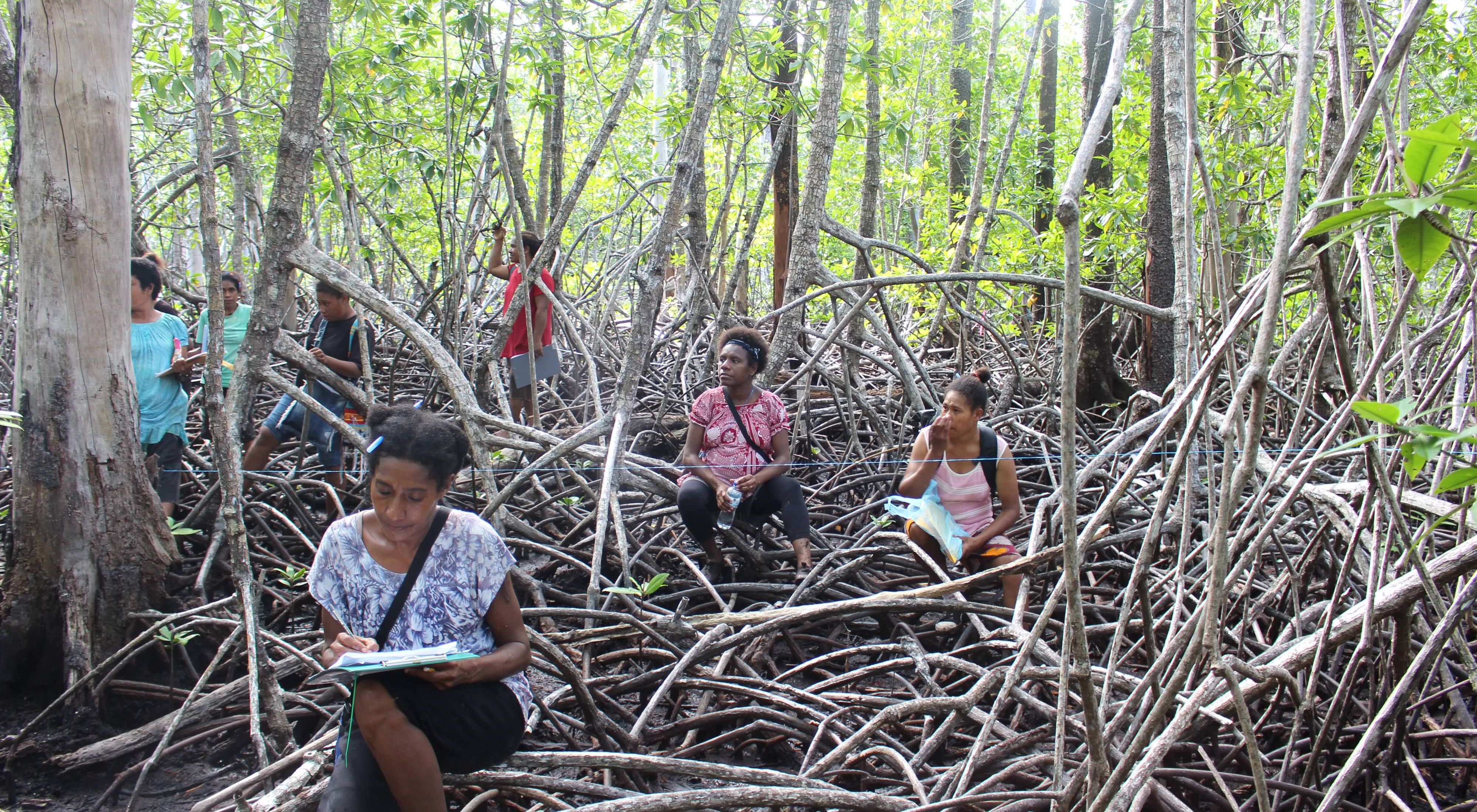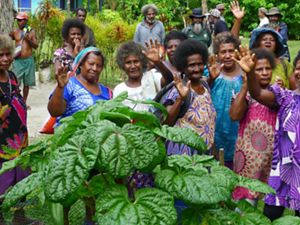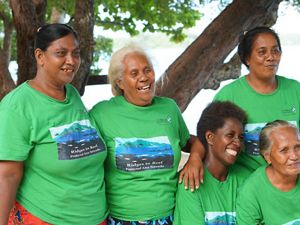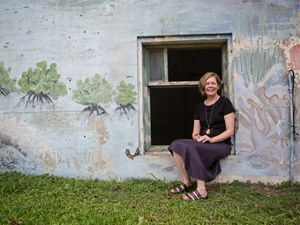Women and Conservation in Asia Pacific
A Woman Scientist Saves Mangroves and Battles Climate Change in Papua New Guinea
What if you grew up in Papua New Guinea (PNG) among the mangrove forests, crawling under the roots, soaked in mud, climbing the trees and hopping from branch to branch, the forest so much a part of you that it becomes deeply enwoven with your being like the veins that run deep in your body, like the rhythms of your soul? And what if you saw these forests that are so much a part of you begin to disappear? What would you do? You might become PNG’s first female mangrove scientist, like Mazzella Maniwavie.
Quote: Mazzella Maniwavie
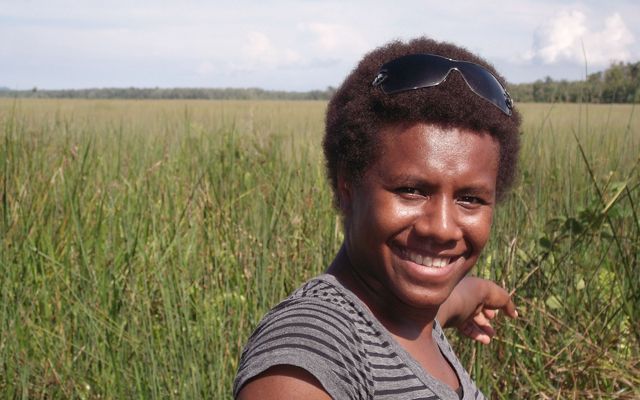
I grew up with a natural lab in my backyard, so my job at TNC is a dream come true.
Mazella’s father was a marine biologist and mangrove scientist in Papua New Guinea, and she always wanted to follow in her father’s footsteps. While she was having “fun tagging along and exploring nature” with her dad, he taught her “how nature looks after our needs and how our behaviour towards the environment determines our very existence.”
Support Women in Conservation
across the Pacific Islands to create positive lives for themselves and their families.
Support Women NowMangroves Threatened by Development and Climate Change
Though PNG is home to some of the most intact and diverse mangrove forests in the world, Mazzella says that, “growing up, the villages neighboring where I lived… had large areas of mangroves diminishing. People heavily depended on their mangroves for raw materials, and population growth resulted in big areas of mangroves being destroyed for settlement. I saw resources diminishing and marine pollution.”
Communities were losing their means of sustenance and income, and disappearing mangroves were no longer able to provide villages with a buffer to storm surges and coastal erosion nor absorb carbon and provide much-needed oxygen to combat climate change.
Quote
“Our greatest challenge in the Pacific is climate change. If we do not use our mangroves wisely, we will have no defence against climate change impacts, and we will end up losing our way of life and our identities.”
A Woman Scientist Responds
This is the call to action that Mazzella answered. She spent a year and half studying for her Master of Science in Marine Biology and Ecology at the James Cook University in Australia. Then, despite being far along in her pregnancy, Mazzella endured long hours in the mangrove patches, working with communities to complete the first ever mangrove forest ecology assessments along the coasts of Dadue, Divinai, and Bubuleta villages on the East Coast of Milne Bay Province.
Mazzella built on her childhood knowledge and her formal education to produce the Community-based Mangrove Planting Handbook, a step-by-step guide to implementing a mangrove rehabilitation project for the coastal communities of Papua New Guinea. “In terms of climate change,” says Mazzella, “on average, mangroves can store three to five times more carbon than upland tropical forests.”
“She will take only a single glance at the leaves or fruits of any mangrove tree and will tell you the scientific name and the altitude they grow in without having to refer to a manual. Such in-depth knowledge of a habitat was just fascinating,” says Senita Wauwia, Field Coordinator for the Mangoro Market Meri Program, which is supporting women’s engagement in sustainable mangrove management.
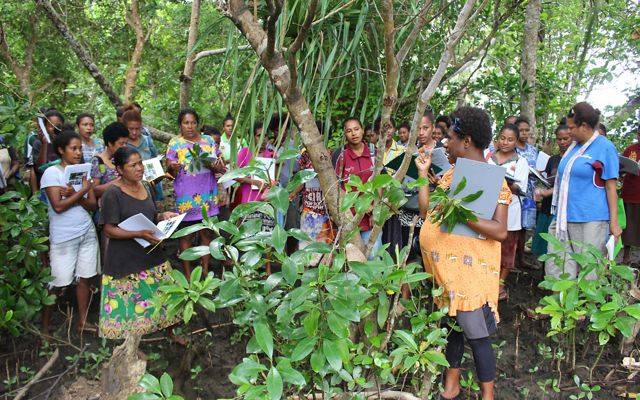
Helping Women to Preserve Mangroves and a Way of Life
Mazzella is employed full time by The Nature Conservancy as a Mangrove Scientist with the Mangoro Market Meri Program and says that, “as a woman who grew up in an environment where I witnessed how women are the biggest users of mangroves and depend heavily on mangrove forests for income to look after their families, it gives me a greater sense of obligation to be an influence in creating gender sensitive mangrove forest management regulations.”
Helping to Establish Mangrove Protection Laws
“One of the biggest gaps in bringing mangrove conservation work forward in PNG is the establishment of mangrove protection laws….My role at The Nature Conservancy and the project I am currently involved in puts me in a strategic position to work closely with government agencies and other conservation partners to bring this agenda to fulfilment.
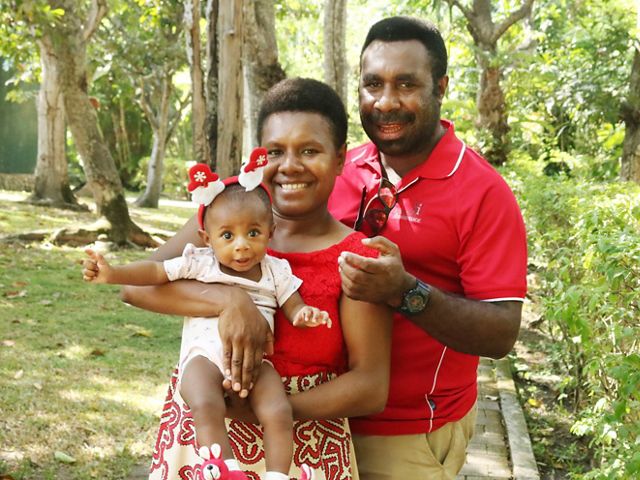
An Award for an Outstanding Woman Scientist
Mazzella’s outstanding leadership in mangrove restoration work in PNG was recognised when she was awarded the Young Achiever Westpac Outstanding Women Award, which included a scholarship to study for a Master’s in Business Administration.
For Mazzella, mangroves are vital to life on our planet. "In order to preserve our Pacific way of life by the sea, we need to look seriously at the way we treat our marine environment….Mangroves connect the land and the sea and their health reflects how we humans behave on land and towards the sea.”
